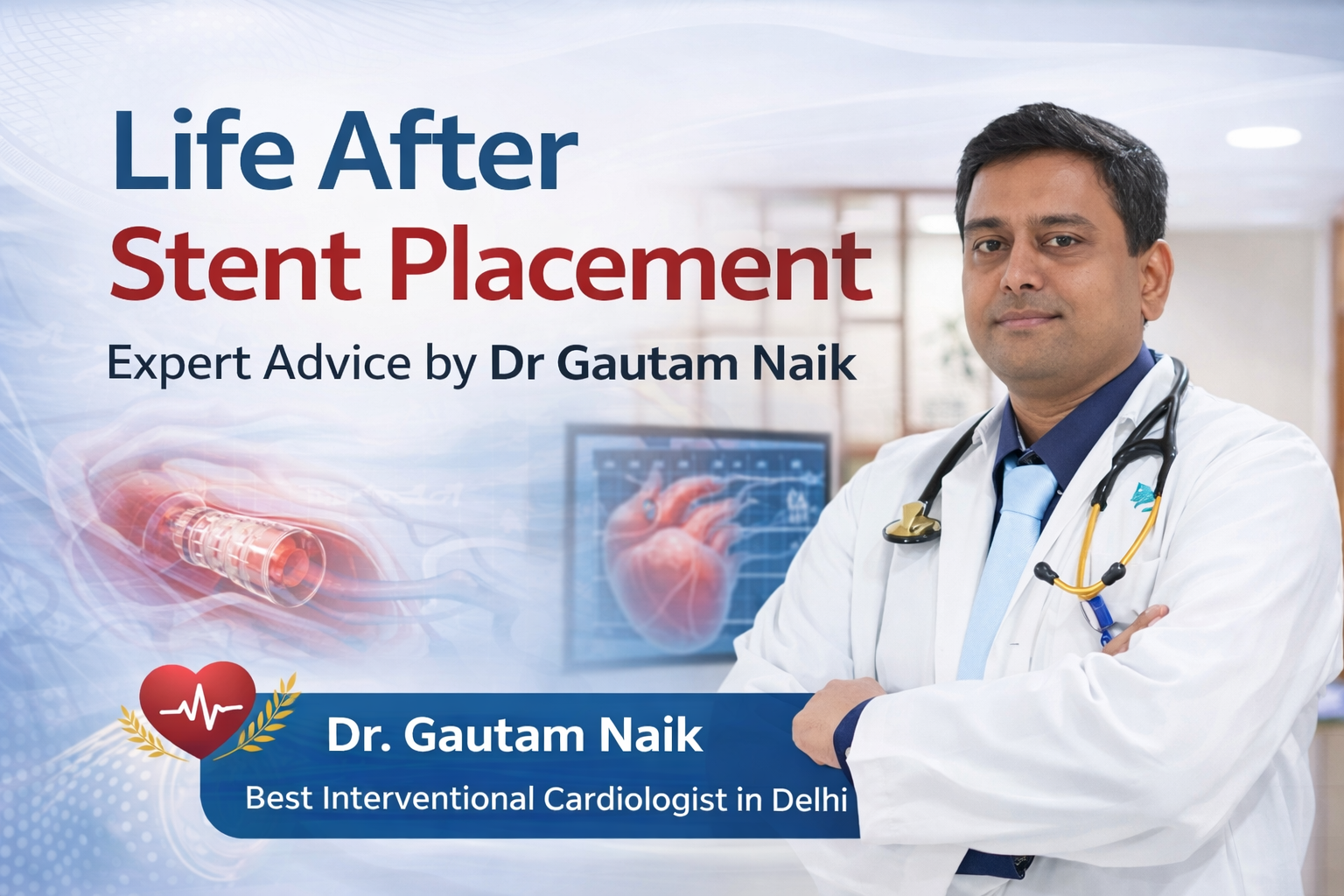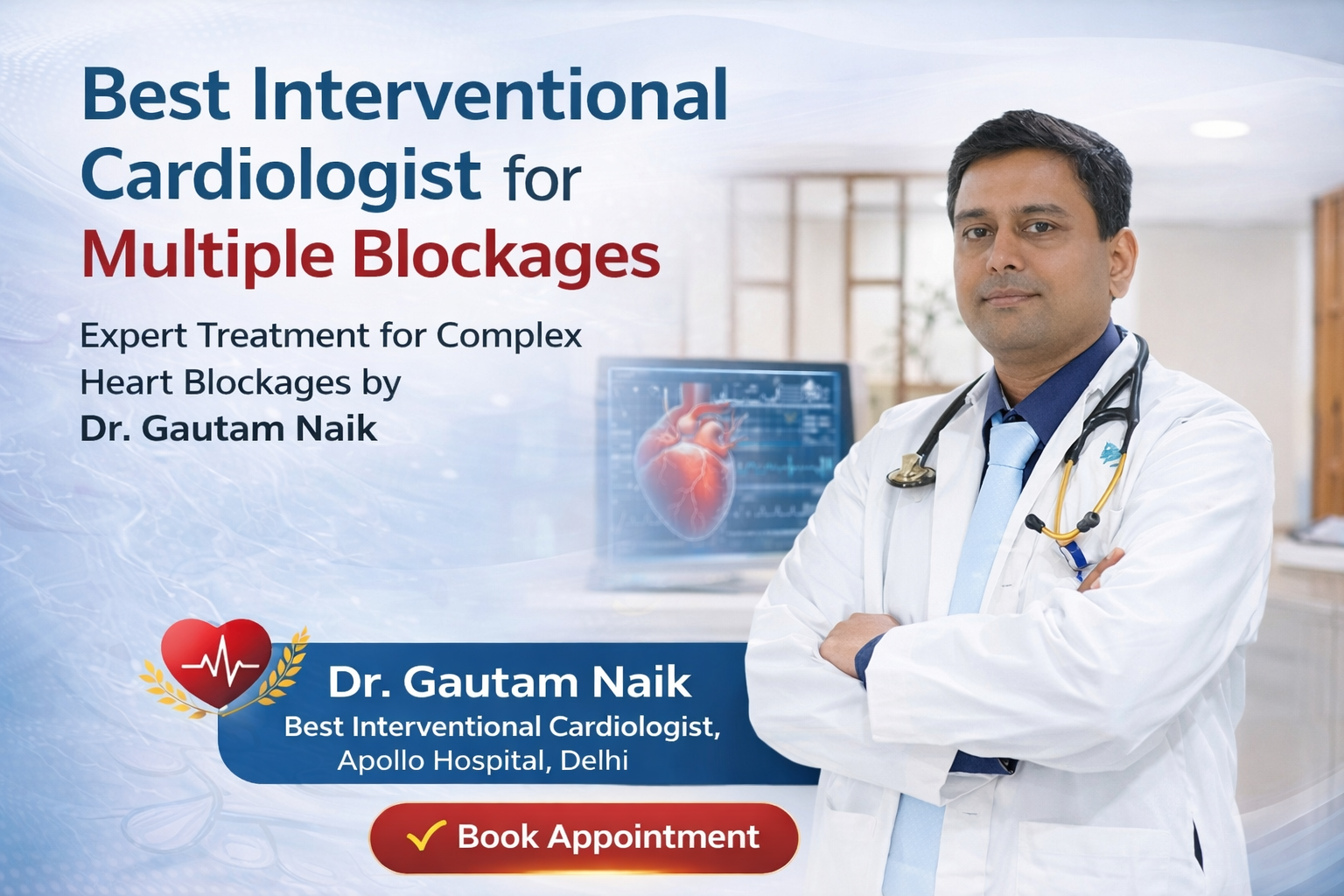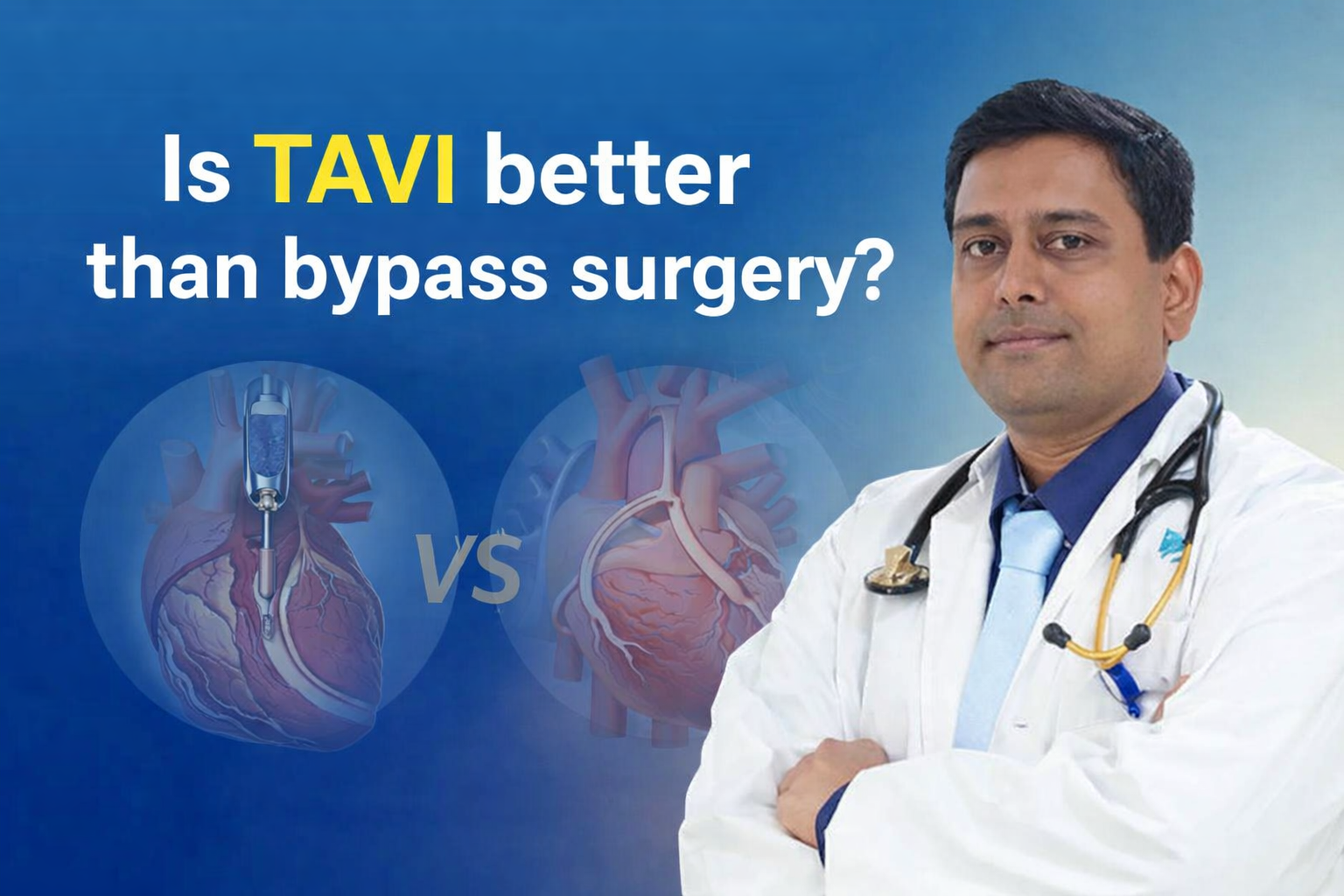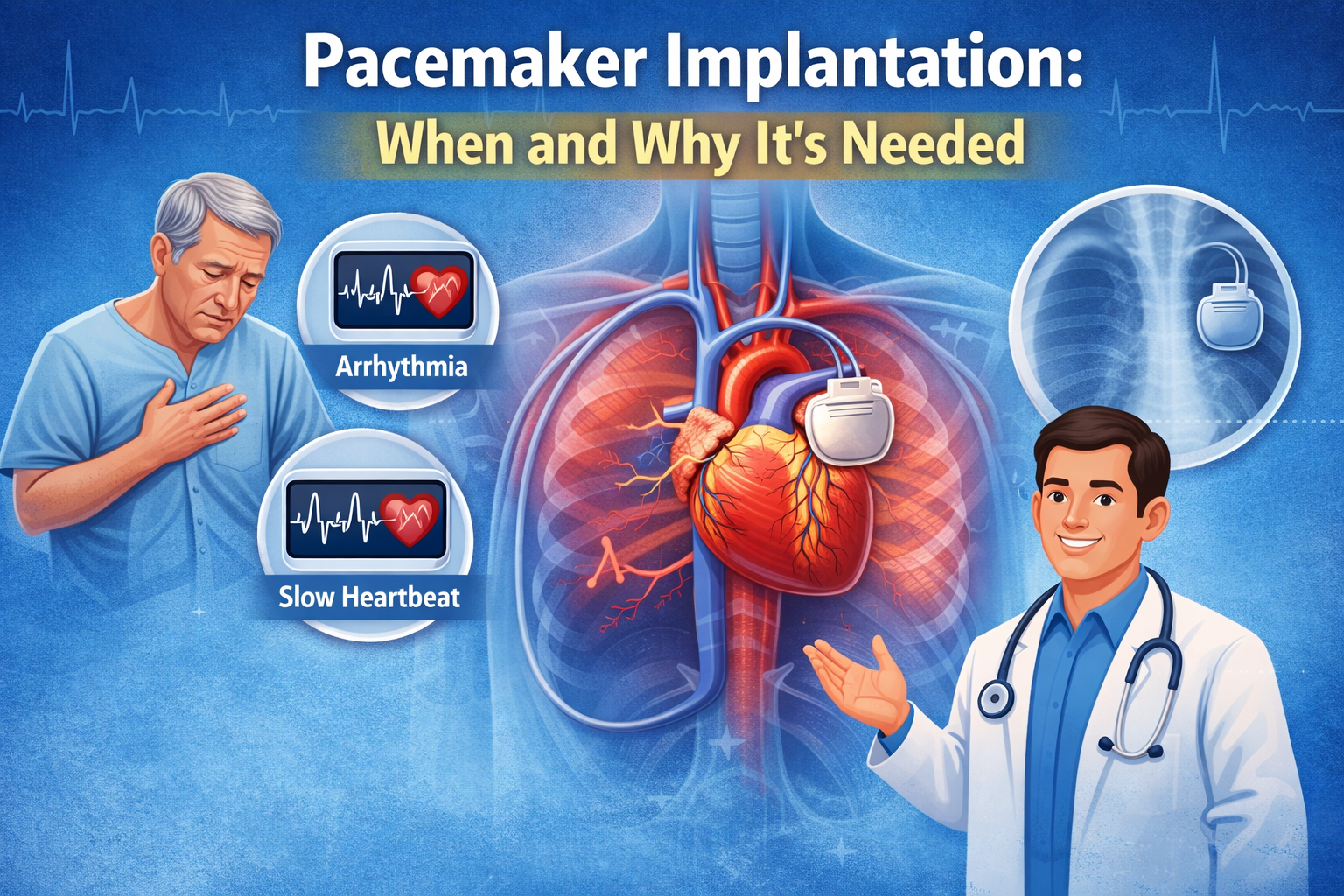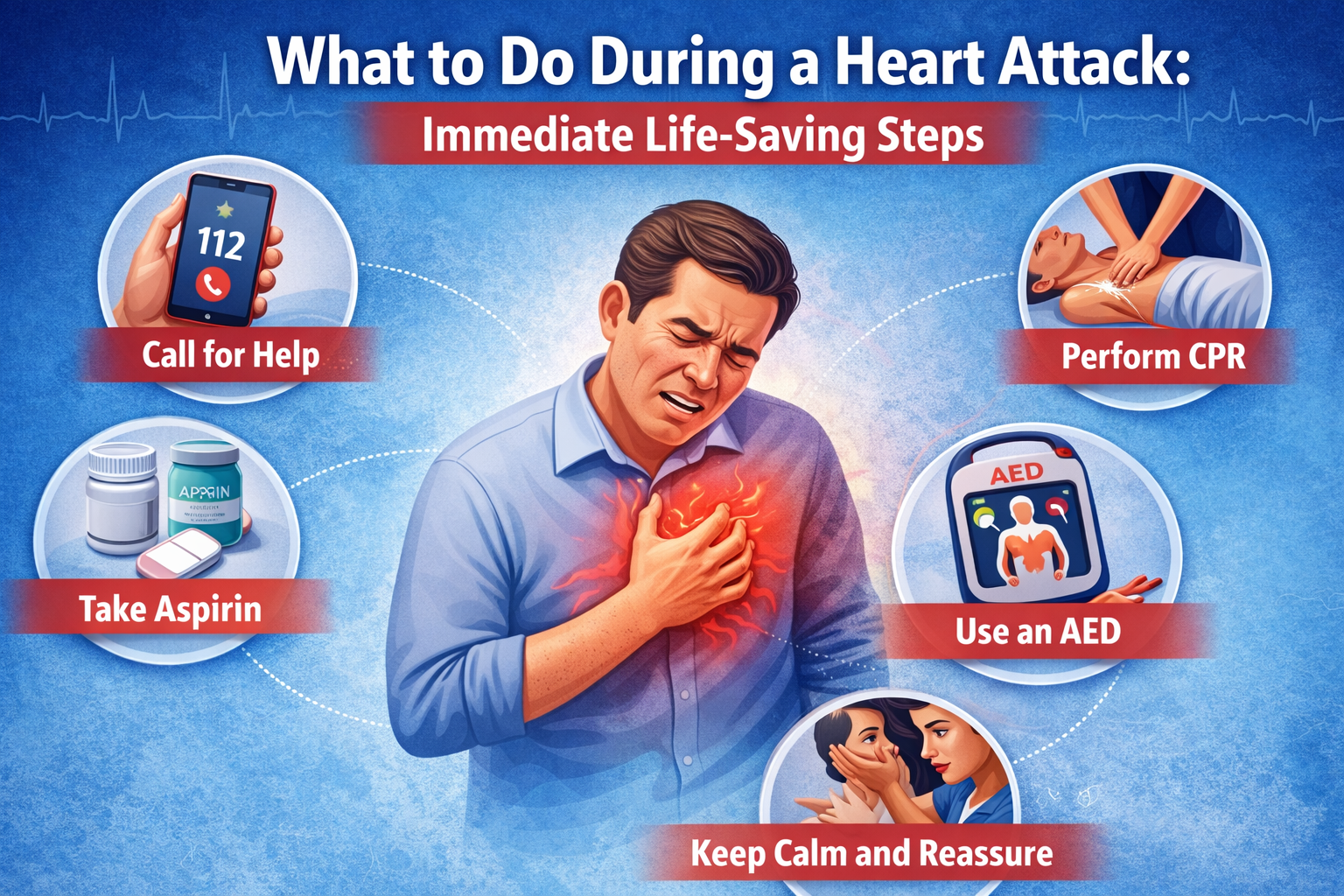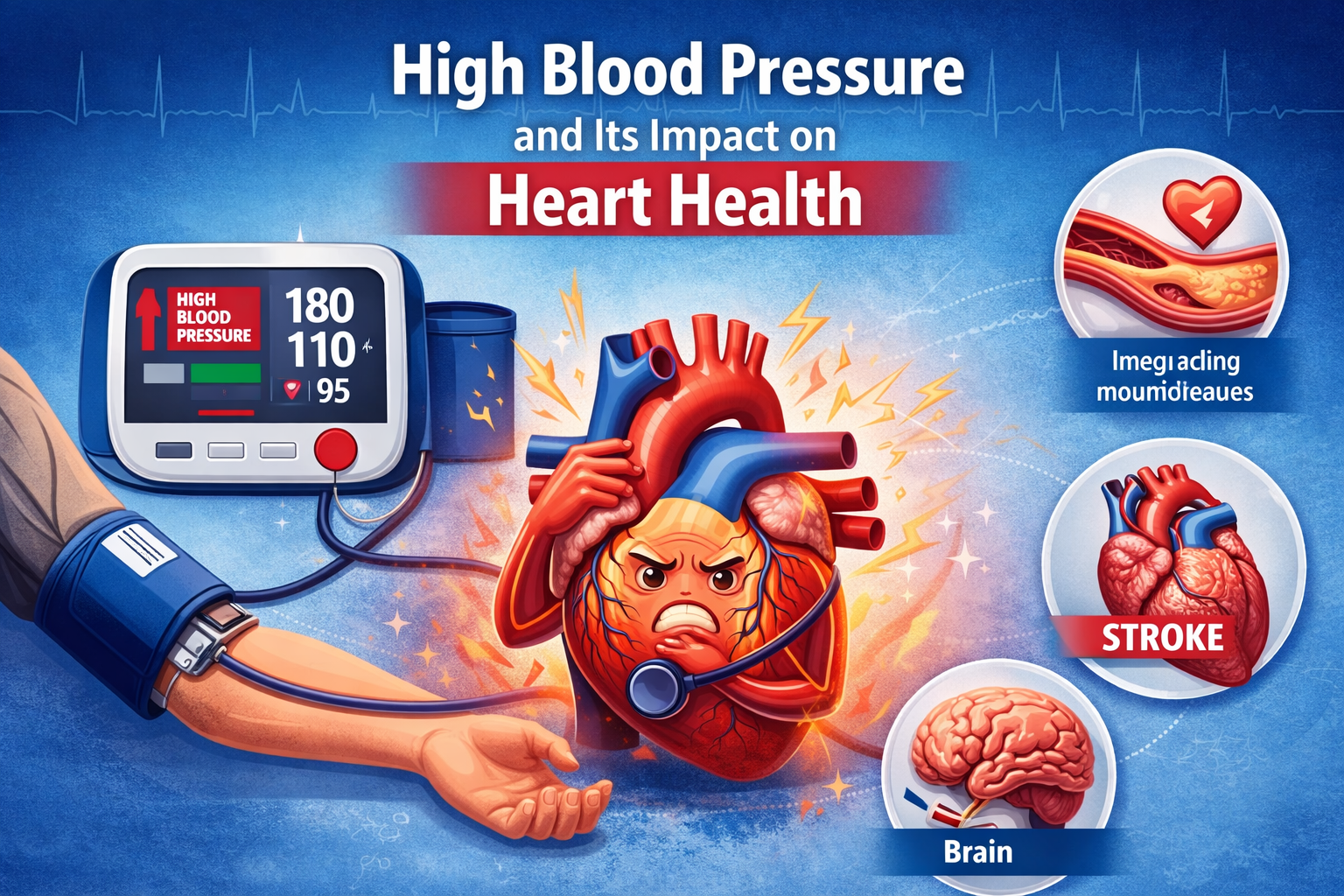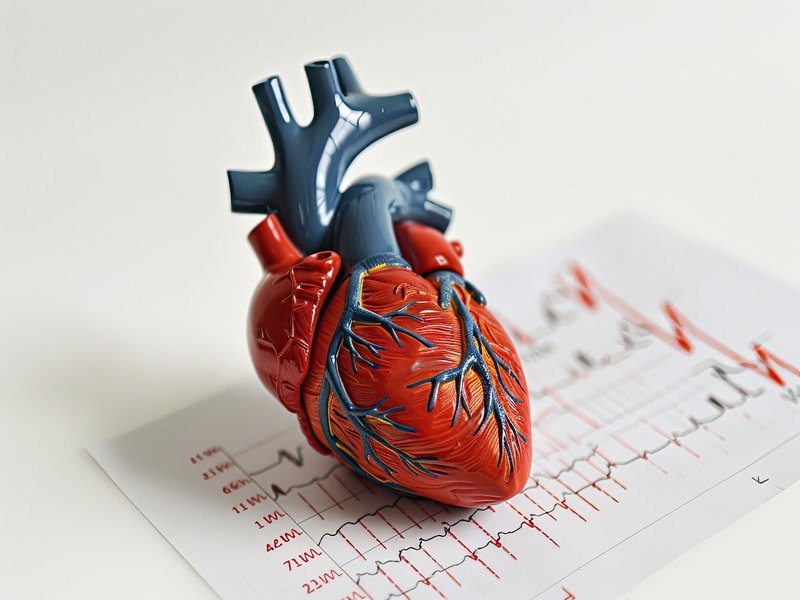
Heart valve disease is a serious condition that affects the normal functioning of the heart’s valves. These valves control the flow of blood through the heart, ensuring it moves in the right direction and at the proper rate. When one or more valves fail to function correctly, it can lead to significant health issues. Understanding the best treatments for heart valve disease can help patients make informed decisions and seek timely medical care. For those seeking expert care for heart valve disease, Dr. Gautam Naik stands out as the leading heart specialist in Delhi/NCR.
Heart valve disease occurs when any of the heart’s four valves—mitral, aortic, tricuspid, or pulmonary—are damaged or malfunctioning. This can lead to conditions such as:
Symptoms can vary based on the severity of the condition but commonly include shortness of breath, fatigue, chest pain, and swelling in the ankles or feet. In severe cases, untreated heart valve disease can lead to heart failure, stroke, or sudden cardiac arrest.
The treatment for heart valve disease depends on several factors, including the type of valve affected, the severity of the disease, and the patient’s overall health. Below are the most effective treatments:
Medications are often the first line of treatment for managing mild to moderate heart valve disease. They can help relieve symptoms and prevent further damage by controlling the heart rate, reducing blood pressure, or preventing fluid buildup. Common medications include:
However, medications cannot reverse valve damage. They are typically used to manage symptoms until surgery or other interventions become necessary.
Balloon valvuloplasty is a minimally invasive procedure used to treat stenosis. A catheter with a balloon at its tip is inserted into the valve. The balloon is then inflated to widen the valve opening, allowing blood to flow more freely. This procedure is commonly used for younger patients and those who cannot undergo open-heart surgery. While effective, balloon valvuloplasty may need to be repeated over time as the valve may narrow again.
Heart valve repair is an ideal option when the valve can be fixed rather than replaced. The goal of this surgery is to restore the valve’s normal function by reshaping, patching, or tightening the valve. It is preferred over valve replacement when possible because it preserves the patient’s natural valve and often results in fewer complications. It’s an excellent option for patients with valve prolapse or regurgitation.
When repair is not feasible, valve replacement becomes necessary. In this surgery, the damaged valve is replaced with either a mechanical or biological valve.
Heart valve replacement is often recommended for patients with severe valve damage, especially in the aortic or mitral valves.
TAVR is a revolutionary procedure used to replace a diseased aortic valve without open-heart surgery. It is especially beneficial for older patients or those with high surgical risk. During the procedure, a catheter is inserted into a blood vessel, guiding a replacement valve to the heart. Once in place, the new valve takes over, restoring normal blood flow. TAVR is a less invasive option and allows for quicker recovery compared to traditional surgery.
For those seeking expert care for heart valve disease, Dr. Gautam Naik stands out as the leading heart specialist in Delhi/NCR. With vast experience in treating complex heart conditions, Dr. Gautam Naik is renowned for his patient-centered approach and expertise in advanced cardiac treatments. His dedication to delivering the best outcomes for his patients has earned him a stellar reputation in the region.
Dr. Gautam Naik is well-versed in both traditional and minimally invasive heart valve treatments, offering tailored care for each patient based on their unique condition. From initial diagnosis to post-surgical recovery, his comprehensive approach ensures that patients receive the best possible care at every step.
Heart valve disease is a condition that requires timely diagnosis and treatment. While medications can help manage symptoms, surgical interventions like valve repair, replacement, or advanced procedures like TAVR offer the best chance for long-term relief and recovery. Patients in Delhi/NCR can confidently rely on Dr. Gautam Naik’s expertise to guide them through the best treatment options available, ensuring optimal care for heart valve disease.
If you or a loved one is experiencing symptoms of heart valve disease, seeking consultation from a top specialist like Dr. Gautam Naik could be the first step toward restoring heart health.
